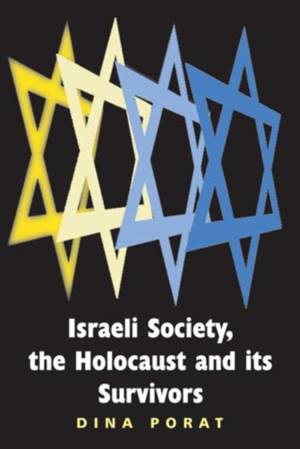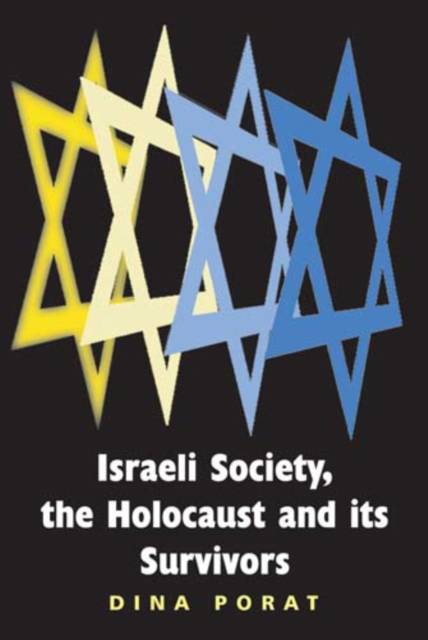
Door een staking bij bpost kan je online bestelling op dit moment iets langer onderweg zijn dan voorzien. Dringend iets nodig? Onze winkels ontvangen jou met open armen!
- Afhalen na 1 uur in een winkel met voorraad
- Gratis thuislevering in België vanaf € 30
- Ruim aanbod met 7 miljoen producten
Door een staking bij bpost kan je online bestelling op dit moment iets langer onderweg zijn dan voorzien. Dringend iets nodig? Onze winkels ontvangen jou met open armen!
- Afhalen na 1 uur in een winkel met voorraad
- Gratis thuislevering in België vanaf € 30
- Ruim aanbod met 7 miljoen producten
Zoeken
€ 48,95
+ 97 punten
Uitvoering
Omschrijving
This collection of twenty essays analyzes the encounters of the Yishuv (the Hebrew community in pre-state Israel) and Israeli society with the Holocaust while it occurred, and with its survivors. Sixty years after the end of the Second World War, this is still a painful topic, very much at the center of the agendas of both Israel and the Jewish communities worldwide, focusing on a soul-searching issue: was the tragedy unfolding in Europe part and parcel of public life in the Yishuv, its priorities and anxieties, and did Israeli society embrace the survivors as they deserved? Based on a wide scope of primary sources and on many years of research, the essays deal with a variety of poignant sub-issues, such as the attitudes of David Ben-Gurion, Martin Buber and other leaders, the understanding of the information about the 'Final Solution', relations and tensions between the Yishuv and the Jewish communities and youth movements in Nazi-occupied Europe, rescue plans and their failure, decisions regarding rescue made during a global war, and parallel changes in the attitude to the survivors and in Israeli and Jewish identity. The balanced answers provided in this collection take into consideration the limited resources of a small community under a mandate and of a young, post-war country flooded by immigration, and the many dominant factors present during a world war and in its aftermath on which the Yishuv and Israel could have no impact, yet could not avoid criticism and pin-pointing of failures and deficiencies.
Specificaties
Betrokkenen
- Auteur(s):
- Uitgeverij:
Inhoud
- Aantal bladzijden:
- 459
- Taal:
- Engels
Eigenschappen
- Productcode (EAN):
- 9780853037415
- Verschijningsdatum:
- 1/01/2008
- Uitvoering:
- Hardcover
- Formaat:
- Ongenaaid / garenloos gebonden
- Afmetingen:
- 155 mm x 234 mm
- Gewicht:
- 884 g

Alleen bij Standaard Boekhandel
+ 97 punten op je klantenkaart van Standaard Boekhandel
Beoordelingen
We publiceren alleen reviews die voldoen aan de voorwaarden voor reviews. Bekijk onze voorwaarden voor reviews.











